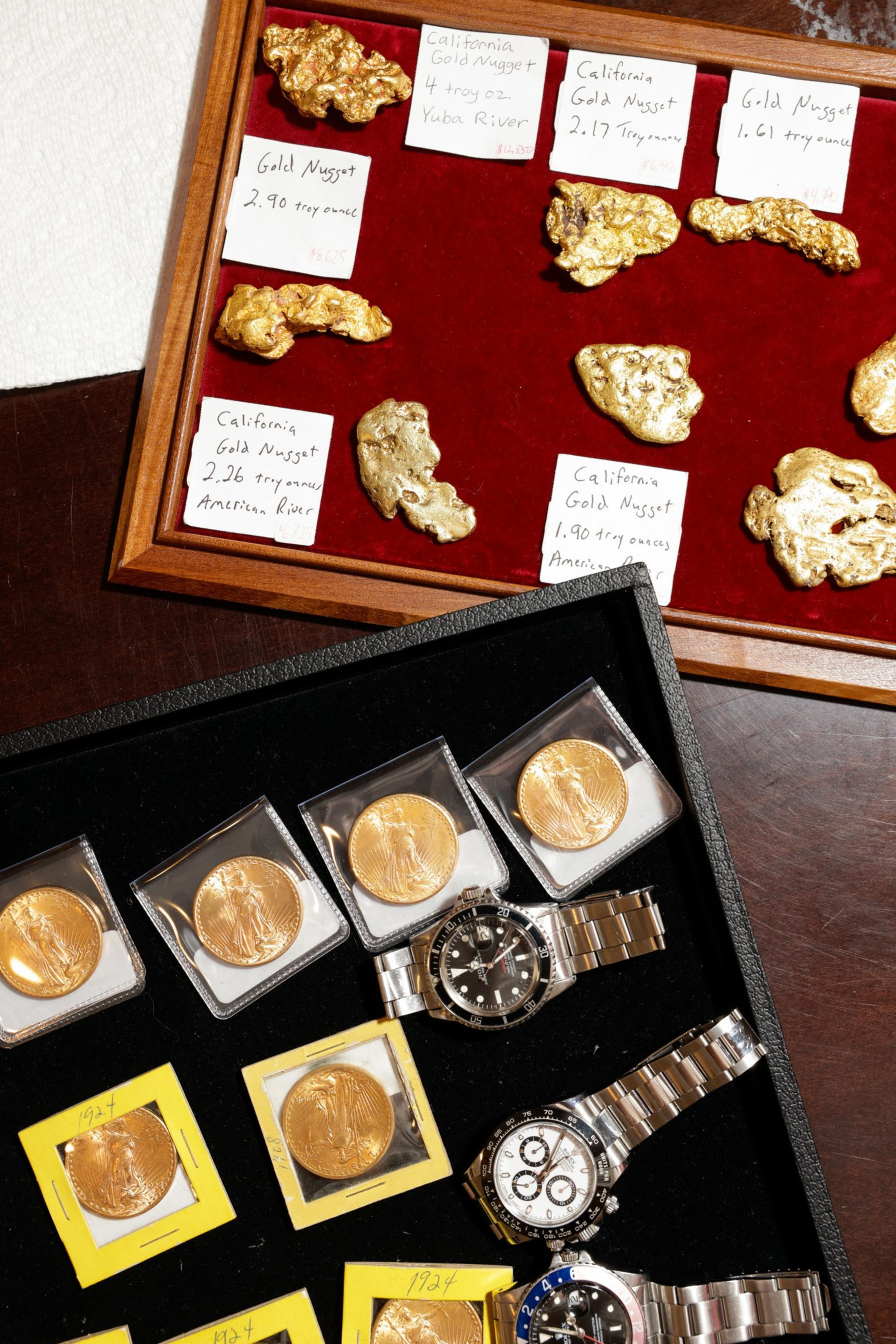Seth Chandler doesn’t fit the typical profile of a social media influencer. He’s a silver-haired 52-year-old with fewer than 30,000 followers (opens in new tab), and his obsession since childhood (opens in new tab) has been collecting rare coins. But when he flicks on the livestreaming shopping app Whatnot, he can turn a relatively small audience into big bucks.
His shop, Witter Coin (opens in new tab), often reels in upward of $100,000 in orders per week through the app. He has earned millions over two-plus years using the platform, including $4 million last year (and he’s on track for $5 million this year).
“I’m an old guy, so I’m like, ugh, technology,” Chandler recalls of joining Whatnot. But he sensed an opportunity to find a new audience for his Cow Hollow collectibles shop and get a leg up on other dealers. “Most coin companies are living in prehistoric times, so I started messing around with it,” he said.
He estimates that he’s spent thousands of hours selling products like Liberty Head nickels and Morgan silver dollars through a platform he describes as “if QVC and Instagram had a baby.” His livestreaming escapades have brought a swell of new customers to 64-year-old Witter Coin and earned him fans from around the country.
“It’s fun, it’s action — I just love it,” he said. “You’re doing 22 things at once: You’re on a stage, and you’ve got to keep people entertained and focused.”


His typical livestream moves quickly: He’s churning through coin sales, often with rapid-fire “sudden death” auctions and most bids starting at $1. Witter’s Whatnot philosophy is that one-third of its products sell “a little strong,” one-third sell “just right,” and one-third sell “too cheap,” so buyers know they might score a deal.
“We go fast as hell, so you get FOMO kicking in,” Chandler said. “We get high-value items and a lot of unique items that most other streamers don’t have.”
While Facebook, TikTok, and Amazon have launched live shopping features, the format has struggled to take off in the U.S. (opens in new tab) in the same way it has in Asian countries. But Whatnot — which has raised about $500 million since launching in 2019 — believes that in a world of sketchy or faceless Instagram or TikTok shops, people are craving a more personal way to buy stuff.
Live shopping “combines entertainment and commerce,” said Chief Product Officer Tom Verilli, who joined Whatnot from Amazon-owned Twitch in 2023. “There’s this trust and authenticity that comes from the ability to see and speak to the person that you’re buying from.”
For Chandler, selling on Whatnot lets him show off his knowledge of coins, as well as his gregarious, playful personality (dad jokes included). It’s both fun and lucrative: Each of his streams garners between 80 and 150 viewers, and he can make $10,000-$20,000 in sales in an hour. The shop’s biggest day on Whatnot? Last year’s Black Friday bonanza brought in $215,000.
His Witter coworkers also host streams but tend to reap fewer sales. (“People really want to see me,” Chandler admits — after all, he has the most livestreaming experience and the deepest well of numismatist knowledge.)
While Chandler estimates that the livestreaming platform accounts for only 10%-15% of Witter’s business, he loves the showmanship, teaching opportunities, and community he has built through the app. Every so often he hosts educational streams about coin grading or authentication, without selling anything.
“I’m a really hypercompetitive person,” he said. “The type of knowledge that we have, a couple sentences can solve a puzzle for another collector. It’s very rewarding — insanely rewarding — to help people out.”
He has become friends with his online regulars, like the buyer who invited him to check out his horses, one of which went on to win the Kentucky Derby, and the Texas grandma who loves to ask about foreign coins.
“The best part about it is the people,” Chandler said. “Most of them are newer to collecting coins, so it’s a great way to introduce them.”

Witter doesn’t sell higher-end products through Whatnot (the business is known for dealing in rare coins that sell for six figures or more, including a pristine 1927 double-eagle gold coin that recently fetched $3 million (opens in new tab)), but the margins are better.
“It’s a money-printing machine,” Chandler said of the app. “We have unlimited amounts of coins that people want; the biggest challenge is that we just need to be on there more.”
He’s considering hiring someone just to host Whatnot streams and has brought several people on board to pack and mail orders, after getting complaints about slow shipping times (opens in new tab). (Whatnot says almost two-thirds of sellers on the platform end up hiring workers to facilitate livestreams or shipping.)
Given Witter’s success on the platform, Chandler encourages other Bay Area businesses to give live shopping a try. At worst, it wastes a bit of time and product, but at best, it allows merchants to have fun while building community and attracting customers.
“If we’re not having fun, we’ll shut it down. If I’m not having fun, it’s over,” he said. “So I think people recognize that, and the depth of our knowledge and excitement. We’re real.”
